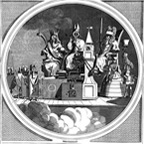ABSTRACT
For the election of the President for the European Commission an unwritten innovation was noticed from 2014, when the new formal procedure establishing the Lisbon Treaty was also applied for the first time. It is the so called the Spitzenkandidaten practice, whereby European political parties, ahead of the European elections, appoint lead candidates (referred to as Spitzenkandidaten) for the role of Commission President, with the presidency of the Commission then going to the candidate of the political party capable of marshalling sufficient parliamentary support. This practice establishes a direct link between the outcome of the European Parliament elections, and the proposal of the President of the European Commission, with the potential of inserting an additional dose of democratic legitimacy into the European Union. The article deals with the Spitzenkandidaten experiment, which has already produced some effects in relations among the European institutions. Moreover, it focuses on some developments that took place in view of the European Parliament elections in May 2019 and, it highlights some uncertainty factors that could compromise the future application of the same practice.
PAROLE CHIAVE: Spitzenkandidaten, Presidente della Commissione europea, elezioni europee
KEYWORDS: Spitzenkandidaten, European Commission President, European elections
Scarica il testo in formato PDF
SOMMARIO: 1. Una premessa storico-metodologica. – 3. L’elezione del Presidente della Commissione europea nel Trattato di Lisbona e nella recente esperienza. – 4. I primi effetti sugli equilibri istituzionali. – 5. Gli sviluppi rilevati in relazione alle prossime elezioni del Parlamento europeo nel maggio 2019 – 5.1. L’indirizzo condiviso dal Parlamento europeo e dalla Commissione a favore del rafforzamento della pratica degli Spitzenkandidaten. – 5.2. Rilievi critici di principio espressi dal Consiglio europeo a tutela delle sue prerogative istituzionali – 5.3. Aspetti problematici di particolare rilevanza da tenere in considerazione.






